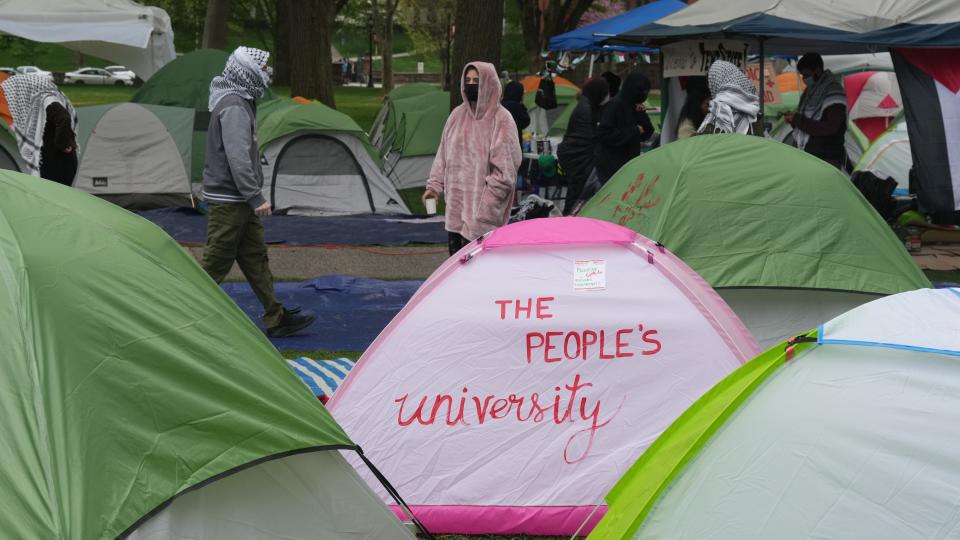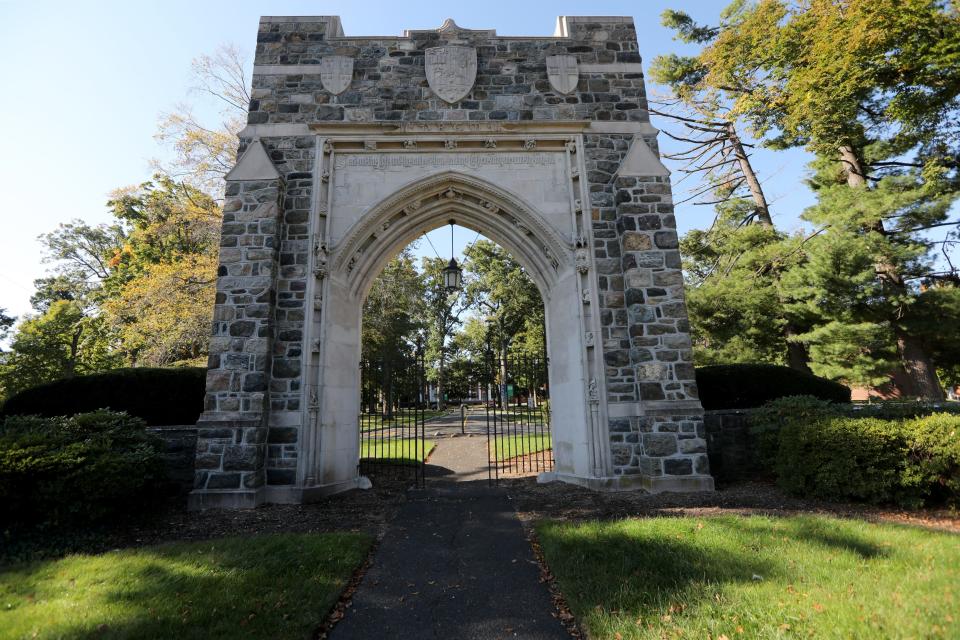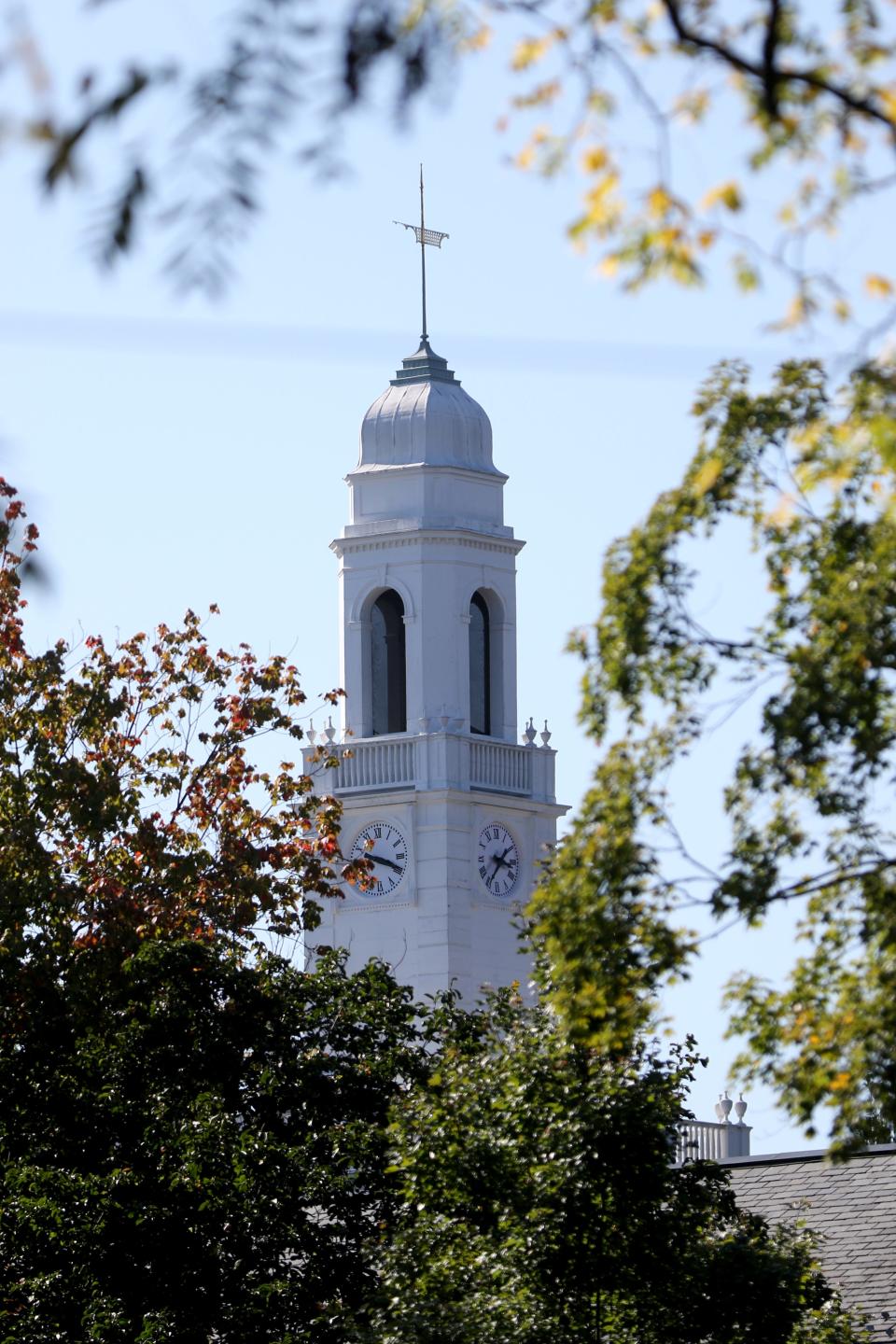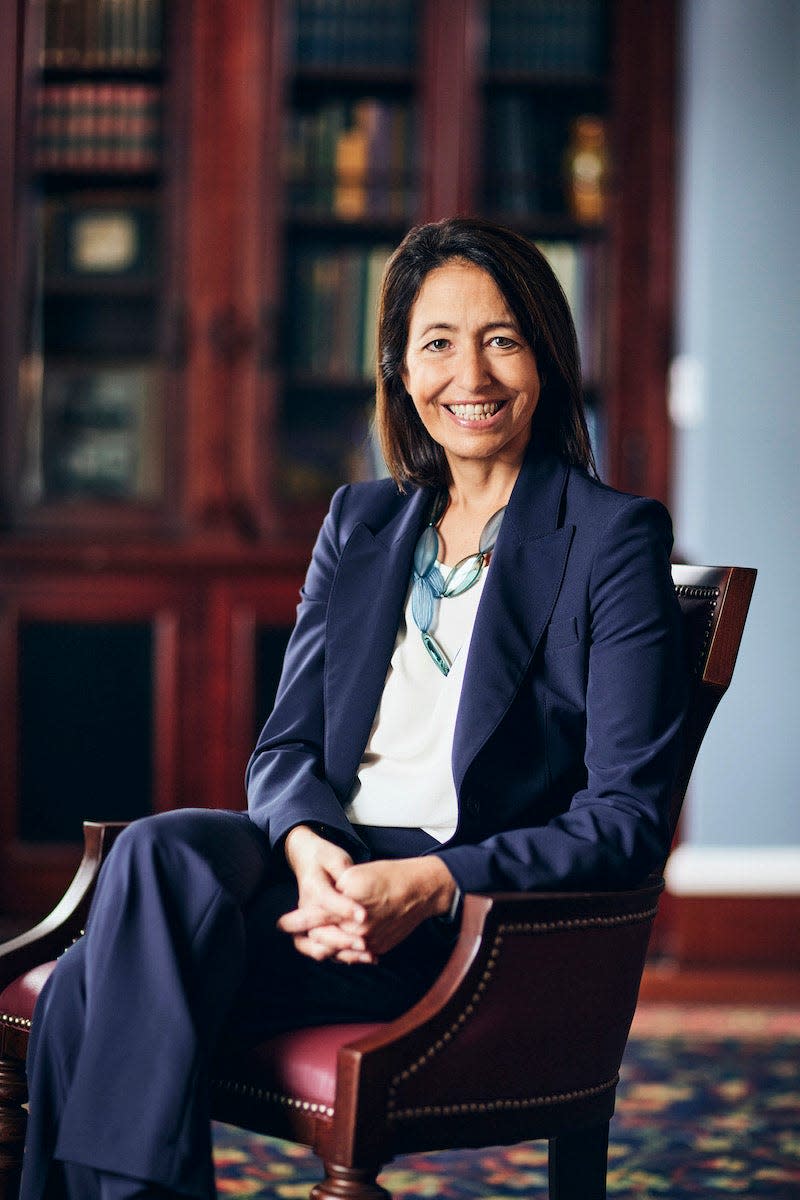Drew University to revamp harassment policy, more after students' antisemitism complaint
Drew University in Madison has entered into a mediation agreement with the U.S. Education Department's Office of Civil Rights after two Jewish students filed a complaint accusing the school of failing to address allegedly antisemitic incidents and campus environment following the outbreak of the Israel-Hamas war on Oct. 7.
The agreement, obtained by NorthJersey.com through a professor involved in the mediation, comes amid a flurry of civil rights investigations launched by the federal government into schools and colleges across the country, prompted by a rise in reports of antisemitic, anti-Muslim and anti-Arab discrimination and harassment in universities and schools following Oct. 7.
Eden Hebron, a former Drew student, said she disenrolled this year because of what she described as a changed atmosphere on the small, 1,600-student campus in Morris County after pro-Palestinian student groups began protesting Israel's military campaign in Gaza.
Story continues below photo gallery
Hebron filed the complaint along with another student who did not want to be named. They alleged that the university did not take appropriate action when posters depicting Israelis held hostage by Hamas were allegedly ripped down on Drew's Madison campus, failed to reprimand a pro-Palestinian campus club for inciteful social media posts and images, and permitted a climate in which Hebron and other Jewish students felt censored and threatened.
The mediation agreement requires the university to take several actions in the coming months. Drew must revisit its harassment and intimidation policy and publish a revised version before the fall semester. The university must also publish and send students an infographic of the policy detailing changes.
Drew must form a three-person panel to adjudicate harassment complaints and matters relating to student conduct as a pilot program until the end of the year.

Drew must also support the formation of an Israel student association, set up security cameras around the campus Hillel house, invite the Office of Civil Rights to train administrators and other college leaders, and invite student feedback to revise the university's posting policy, which applies to social media.
In a statement, Drew said that the university’s policy "is to never disclose private student information, but we are able to confirm that the university voluntarily participated in a confidential mediation process this year. Mediations differ from investigations, and mediators do not decide right from wrong, but assist parties in coming to a resolution."
"The terms of the mediation agreement included items that are standard practice for the university including ongoing review and updating of policies and practices, administering a campus-wide climate study to update the information last collected, and providing training on discrimination and harassment in addition to the annual training that already occurs for faculty and staff at Drew on these topics," the statement said.
"Drew University unequivocally condemns antisemitism and other discrimination based on shared ancestry and we are committed to ensuring students of shared Jewish ancestry feel welcome and safe on campus," it said. "All members of our community must work to condemn antisemitism, Islamophobia and other discrimination."
Frank Merckx, Drew's vice president of enrollment management and campus life, signed the agreement with the two students on April 17 after weeks of discussions with mediators from the Department of Education, said Jonathan Rose, a professor of British and European history at Drew.
Rose, who is Jewish, said he participated in the mediation as a third party supporting the students.
"We could have gone a step further and charged the university with discrimination, but that would have taken years to resolve, so we decided to at least, as a first option, go for mediation, which can be resolved much more quickly," Rose said.

Hebron told NorthJersey.com that she has since transferred to a school in another state.
Mediation proceedings take place when both parties agree to work together after the federal government receives a civil rights complaint and determines that a mutual agreement could resolve differences and address allegations.
The federal government can reopen and investigate a complaint if it finds that mediation was unsuccessful. The government does not comment on investigations but has made the complaints by Hebron and others available on its website.
Jewish students on Drew's campus were shaken when posters calling for the release of Israeli hostages were removed from the walls of the campus Hillel building overnight in October, weeks after the surprise attacks in Israel. Merckx allegedly commented that the posters could be "triggering" for some; another dean allegedly questioned if Hamas is indeed a terrorist group, but later apologized, the students said at the time.
Shortly after, student members of the campus Jewish organization Hillel were blocked from tagging, sharing or commenting on the group's Instagram handle. A pro-Israel post was taken down and student administrators lost access to their passwords and login. Student access to Hillel's Instagram was only reinstated after an inquiry by NorthJersey.com.
Hebron, her fellow complainant and Rose say they echo a sentiment shared by many Jewish students that the campus chapter of Students for Justice in Palestine is influential at Drew. SJP, a nationwide campus organization that has become a leading organizer of antiwar protests and calls to divest from Israeli investments, described Hamas' attacks in Israel on Oct. 7 on its website as a “surprise operation against the Zionist enemy” by resistance members.

As a result, many Jewish students at Drew have feared for their safety, especially after the university's minimal response when the posters were vandalized, Rose said. Adding to their frustration were posts on the Instagram handle of Drew's SJP chapter that justified Hamas' taking of civilian Israelis hostages in its Oct. 7 attack, which many Jews on campus found threatening.
"We felt that this kind of rhetoric was an incitement to violence," Rose said.
While it did not directly address concerns about some of Drew SJP's Instagram posts, which are still online, the three-person panel that Drew must form will also adjudicate concerns around the posts.
The original complaint said that administrators allegedly asked the official Hillel Instagram handle not to publish calls for a peaceful vigil and discouraged the group from serving hummus at a meeting.
Both Jewish and Muslim students in campuses across the U.S. have faced bullying in person and on social media since the war broke out. The federal government has launched civil rights investigations at universities and schools across the U.S, including Rutgers University, citing an "alarming rise" in harassment incidents.
While current campus protests are targeting Israel's military campaign in Gaza that has left more than 34,000 dead, a majority of them women and children, and brought Gaza to the brink of famine, according to the United Nations, some rallies and meetings have been openly threatening to Jews.
Campuses have since become the center of pro-Palestine protests, with Columbia, Princeton, the University of Texas at Austin and other universities calling in police, and arresting students in encampments.
Drew must underscore to students to make accurate statements

The Drew agreement requires the university to inform students about the importance of making verified, factual statements, and to condemn antisemitic and other discriminatory behavior. It requires the university to address "as appropriate, any recent campus incidents of concern, the importance of source identification when citing to facts, seeking information from sources with integrity and differentiating factual information from opinions."
The university's club website, The Path, must publish the names of faculty advisors for official campus organizations and clubs.
The university has not publicly announced the mediation agreement, but appears to be cooperating. A campus-wide email Tuesday from president Hilary Link, which condemned all forms of discrimination and referred to "the tragedies in Israel and Gaza," clearly met one of the requirements in the agreement.
The university wanted to give students "the tools needed to live in the discomfort around them and respond to current and future geopolitical conflicts," she wrote. "We remind everyone in the Drew community that your words and actions, including those on social media, have an impact and affect those around you. For example, a rallying cry to some may be heard as a direct threat to others," she wrote.
"We will see to what extent the agreement is actually carried out," Rose said. The students who filed the complaint said they were optimistic and glad the university agreed to address their concerns.
This article originally appeared on NorthJersey.com: Drew University to revise policies after Jewish students' complaint

